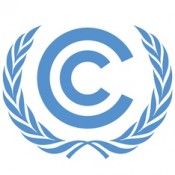REDD Text Limps Out Of Doha
Healthy, Homeless, And Broke
The REDD negotiating text has now officially been passed to high-level negotiators, with new provisions for recognizing non-carbon benefits but no agreement on how to verify emissions reductions, nowhere near anything resembling agreement on finance, and no place to call home.

UPDATE: As of 22:00 local time, high-level talks are continuing but no changes are expected to the REDD text. We will provide a more comprehensive wrap Monday morning incorporating the latest high-level outcome and a review of all impacts on land-use. Please check back then.
7 December 2012 | Doha | Qatar | High-level climate talks continue here and may run until Monday, but negotiations on reducing emissions from deforestation and degradation (REDD) appear to have wrapped up for the year.
Some parts of the text are now complete, and these are embedded in the most recent outcome of the Advanced Working Group on Long-Term Cooperative Action (AWG-LCA) – the negotiating track created at COP 13 in Bali, Indonesia and slated to end today.
Other parts of the text remain unfinished, and these are now on the agenda for the next meetings of the Subsidiary Body for Scientific and Technological Advice (SBSTA) and the Subsidiary Body for Implementation (SBI), which take place in Bonn, Germany in June.
The critical issue of results-based finance will be picked up at workshops headed by two co-chairs – one from the developed world and one from the developing world, both appointed by the President of the COP.
That leaves the mechanism with $5.35 billion in public funds committed and $2.24 billion acknowledged and spent by both developed and developing countries, according to the REDD Database but that doesn’t include the $500 million each pledged by Norway and the UK.
The Final Outcome
The “final” LCA text is available here, but several parties have already voiced objections to key provisions. Pargraphs 25 through 40, however, have not been challenged, and these are the paragraphs related to REDD.
The text recognizes the need to talk about “ways to incentivize non-carbon benefits,” such as water filtration, biodiversity preservation, and the support of forest peoples, and it also calls on SBSTA and SBI to build a home for REDD by the end of 2013 – for, with the Kyoto Protocol negotiating track wrapping up Thursday and LCA wrapping up today, everything rolls over to the Ad Hoc Working Group on the Durban Platform for Enhanced Action (AWG-ADP), which is to deliver a binding global agreement by 2015 to be implemented no later than 2020.
Building A Home
Coming into Doha, REDD talks were split between SBSTA, LCA, and the Subsidiary Body for Implementation (SBI), and the Doha talks were supposed to create a roadmap for the ADP. When it became clear that wasn’t going to happen, however, Papua New-Guinea (PNG) pushed for the creation of a new “REDD Committee” that would house all REDD talks. PNG created a detailed, three-page proposal that was gradually whittled down to a few bullet points and then banished to SBSTA and pushed off to June.
Also left unresolved is how emission-reduction results will be verified. Last week, Norway pushed for third-party verifiers “drawn from the roster of experts,” referring to experts in both developed and developing countries, as opposed to the Consultative Group of Experts (CGE), which is a roster of experts which is balanced in favor of developing countries.
Brazil balked, arguing instead for a continuation of the International Consultations and Analysis (ICA) process, which is substantially softer on developing countries.
Brazil says it will deliver a formal counterproposal at the next SBSTA meeting.
The REDD Committee
As proposed, the REDD Committee would include members of developed and developing countries, and is aimed at creating a standardized REDD “product” within the UNFCCC that would send a clear signal on the value of forests to both governments around the world and the global private sector.
Many delegates say the formation of such a committee is inevitable, but several said there simply wasn’t time to discuss it at these talks.
Additional resources
Please see our Reprint Guidelines for details on republishing our articles.

